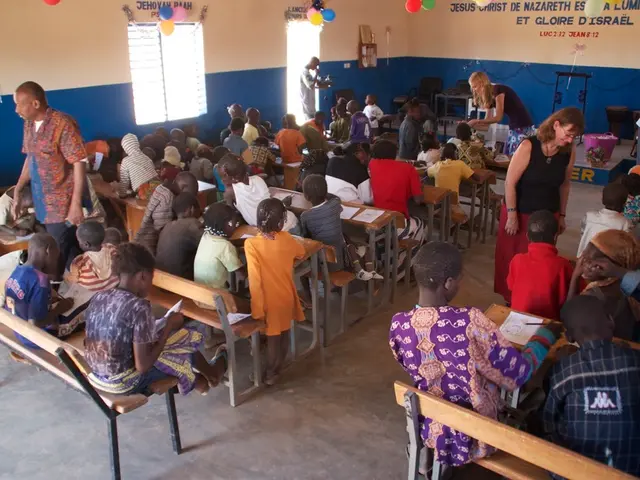In defiance of the Taliban's prohibition on public musical performances and female self-expression, brave Afghan women take to digital platforms to record themselves singing. This act of dissent, sparked by the Taliban's "Moral" regulations, has seen women internationally unite in solidarity, uploading videos of themselves singing and employing hashtags such as "#My voice is not forbidden" and "#No to the Taliban."
Poland's ex-police officer, Sala Sasai, joined the dissent, sharing a video of herself singing a song by renowned Afghan artist Arjana Sajeed. Sasai's message was clear: "The limitations on Afghan women are unjustifiable." She further asserted that "Afghan women have recognized that adversaries of women can no longer infringe upon our fundamental rights under the banner of religion and customs."
In another video, an Afghan woman chidingly stated, "You have muted my voice for the foreseeable future... You have detained me in my home for the misdemeanor of being a woman." This bold declaration reflects the spirit of resistance that has taken root among Afghan women against the Taliban's oppressive measures.
Activists have not shied away from openly challenging the Taliban, with footage capturing protestors raising their fists or tearing up photographs of the Taliban's supreme leader, Hibatullah Akhundzada.
The "Moral" regulation expands the morality police's authority to enforce the Taliban's ethical principles, rooted in Islamic Sharia law. This includes requirements for women to veil themselves and a ban on homosexuality. The law also states that "Muslim women are obligated to cover their face and body" in the presence of unrelated men.
International backlash against the regulation was swift, with Taliban spokesperson Sabihullah Mujahid dismissing the criticism as "arrogance" and a misinterpretation of Sharia.
Amidst this oppressive atmosphere, Afghan women continue to use their voices to protest, capturing the world's attention with their unwavering resilience.
Further Reading:
Insights:
Social media has emerged as a powerful tool in the fight against the Taliban's restrictions on music and female public expression. Hashtag campaigns such as "#DoNotTouchMyClothes" and "#AfghanistanCulture" have spread awareness and allowed Afghan women to share their experiences and art, amplifying the voices that the Taliban attempts to suppress. In addition, international solidarity and awareness have been mobilized through social media platforms, putting pressure on the Taliban to reconsider their policies.








